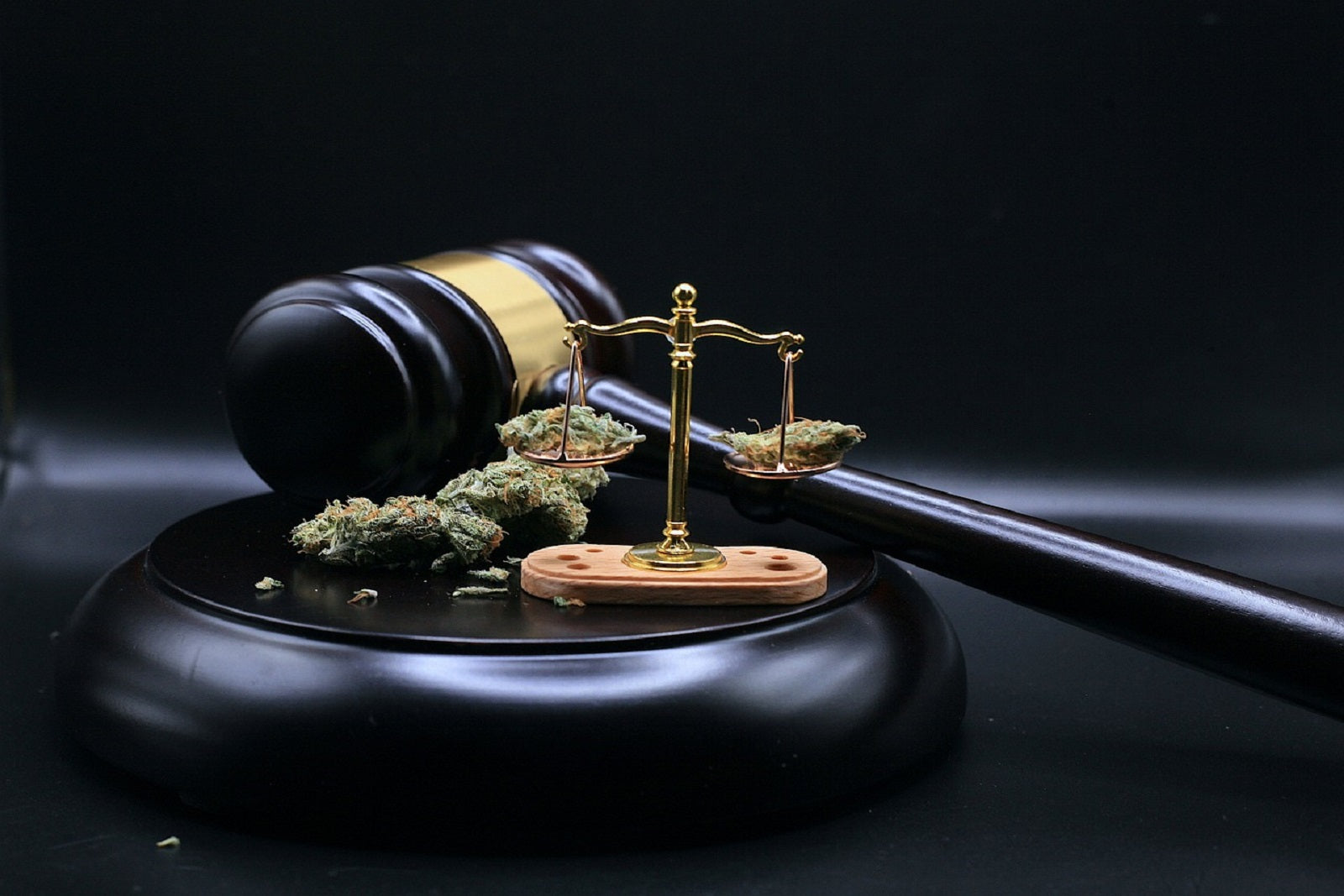Exploration into the scientific realm of cannabis is expanding our comprehension not only of CBD and THC but also delving into other plant-derived cannabinoids, such as THCV. Despite sharing a molecular structure with THC, or tetrahydrocannabinol, THCV exhibits a distinct array of effects and medicinal advantages, distinguishing it from cannabinoids like THC and CBD.
Termed colloquially as "diet weed," THCV, sourced from cannabis, may induce psychoactive effects akin to THC, particularly in higher doses. However, the parallels in the effects of this cannabinoid appear to cease at that point. Many proponents of cannabis propose that THCV could potentially mitigate the adverse effects associated with THC, including excessive indulgence in snacks and heightened anxiety.
This comprehensive exploration of THCV encompasses an examination of its benefits, effects, and the legal considerations surrounding its use.
The Down and Dirty Science of THCV: The Difference Between THCV vs THC
As previously mentioned, despite sharing similarities in name and appearance, THCV and THC exhibit notable differences. THCV serves as an analog of THC, implying a resemblance in appearance but distinct behaviors within the endocannabinoid system (ECS).
A significant contrast between THCV and THC lies in the length of their hydrocarbon chains—the longer hydrocarbon chain of THC results in a more intense and typically longer-lasting high.
Both THC and THCV originate from chemical reactions involving various acids and enzymes within the cannabis plant. Common phytocannabinoids, including THC and CBD, stem from cannabigerol acid (CBGA), formed when geranyl pyrophosphate reacts with olivetolic acid.
In contrast, THCV is derived from cannabigerovarinic acid (CBGVA), which is produced when geranyl pyrophosphate interacts with divarinolic acid instead of olivetolic acid.
Subsequently, both CBGVA and CBGA undergo reactions with THC synthetase. Following this, decarboxylation is essential for the formation of THC or THCV.
For users of vape products, it's important to note that THCV has a higher boiling point of 428 °F (220 °C) compared to THC. Adjusting the temperature accordingly is necessary to vaporize THCV effectively.
The Effects and Benefits of THCV
THCV is particularly favored among outdoor enthusiasts and athletes due to its robust energy-boosting properties. Significant psychoactive effects typically manifest only with substantial consumption (approximately 10mg and above) and are characterized by shorter durations attributed to the hydrocarbon chain's length in THCV. Users often report heightened alertness, increased wakefulness, and enhanced clarity of thought when using THCV.
Ongoing research into THCV consistently reveals promising results. Noteworthy findings include:
Appetite Suppression: Despite THC's reputation for stimulating appetite, THCV research suggests a surprising reduction in hunger pangs, making it a potential choice for intermittent fasters.
Diabetes Management: Studies indicate that THCV may possess the ability to regulate blood sugar levels and alleviate insulin resistance, offering potential benefits for individuals dealing with diabetes.
Anxiety Reduction: In contrast to THC, which can induce anxiety in some individuals, THCV appears to have an anxiety-lowering effect, particularly noted in PTSD patients, without dampening emotions.
Bone Growth Stimulation: THCV is under investigation for its impact on osteoporosis and other bone-related conditions, as it seems to promote the growth of bone cells.
Additional Potential Benefits: While still in the early stages of exploration, emerging evidence suggests that THCV may also be beneficial for conditions such as Parkinson's disease, psychosis, bacterial inflammation, acne, fatty liver disease, and epilepsy.
It's crucial to note that ongoing research continues to shape our understanding of THCV's potential benefits. Although the field is evolving, the current findings hold promise for various therapeutic applications.
Will THCV Get Me High?
In modest quantities, THCV is unlikely to induce significant mind-altering, psychoactive effects. As previously explained, THCV may counteract specific THC effects, potentially diminishing the overall high, given its ability to obstruct CB1 receptors—the receptors to which THC binds—in our endocannabinoid system (ECS). However, in more significant amounts, THCV can elicit a psychoactive experience.
While THCV does exhibit some psychoactivity, its strength is estimated to be approximately 25% of Delta 9 THC and about 50% of Delta 8 THC. The high induced by THCV, owing to its shorter molecular chain, may not be as intense or prolonged. Nevertheless, individuals in regions without recreational marijuana laws often regard THCV cannabis as a viable alternative to traditional marijuana until broader legalization takes place.
Is THCV Legal?
With the legalization of hemp under the 2018 Farm Bill, a legal landscape emerged that introduced ambiguities in the realm of cannabis sales. In states lacking recreational marijuana programs, numerous cannabis retailers now offer strains rich in THCV derived from hemp. While the 2018 Farm Bill designates THC, cannabimimetic agents, and tetrahydrocannabinol as Schedule 1 controlled substances, THCV does not fall within the outlined phytocannabinoids of concern.
Crucially, THCV is not categorized as cannabimimetic because its functions diverge from those of THC. Since THCV does not originate from THC, it does not meet the criteria of being a tetrahydrocannabinol.
The distinctive origin of THCV has granted it certain leniency in states with less stringent cannabis regulations. Additionally, its presence in minimal amounts in most domestically grown hemp plants has diminished its priority for many lawmakers.
Nevertheless, given the escalating popularity of THCV, regulatory adjustments remain plausible in the future. The sustained demand for cannabis products may instigate stricter oversight, potentially leading to THCV being categorized as a controlled substance.
As previously discussed, THC and THCV share similar genetic compositions, and considering THCV as an analog of THC adds complexity to its legality. Legislation typically deems THC analogs as controlled substances.
So, is THCV legally permissible? The answer hinges on the specific laws in your area. It is advisable to thoroughly research local cannabis regulations before engaging in THCV purchases.
Will THCV Cause Me to Fail a Drug Test?
While many marijuana drug tests primarily assess THC metabolite levels, some examinations specifically target THCV content. It's important to note that detectable traces of THCV may persist in the system for up to two weeks, as indicated by a study involving non-marijuana smokers. However, only 50% of those who consumed THCV exhibited noticeable levels.
In essence, current types of drug tests may not be sensitive enough to detect THCV reliably. Further research is essential to draw conclusive findings on this matter. As a precautionary measure, it is advisable to avoid THCV if you anticipate an upcoming drug test until more comprehensive information is available.
Our Final Thoughts on THCV
THCV is gaining popularity as a preferred option among outdoor enthusiasts, athletes, and individuals seeking enhanced energy, inflammation relief, improved mood, and overall well-being.
For those eager to incorporate THCV into their daily wellness regimen but need help finding a preferred brand, your search ends here. Soothe Organic is committed to delivering products of exceptional quality, with meticulous attention to ingredients. Each salve, oil, and cream is held to a high standard, promising effective results. Explore our selection of THCV gummies, your gateway to a wellness experience you can trust.
To learn more about CBD, sign up for our Soothe Organic email list (we promise to only send what we think you want to know), explore our additional education and resources, or check out our product line with CBD all-stars.
Have questions? Drop us a line.
CBD for gout, Organic sleep gummies, CBD mood swings, CBD sleep apnea, CBD stores casper wy, CBD, CBD casper wy broad spectrum cbd, full spectrum cbd , sleep gummies, cbd softgels, organic cbd salve, CBD salve, delta 9 gummies, best delta 9 gummies, thcv gummies, cbd gummies for anxiety, full spectrum vs broad spectrum CBD, broad spectrum CBD oil, USDA organic CBD, gummies for sleep, best CBD oil for pain, CBD softgels 25mg, best CBD oil for dogs, delta 9 gummies near me, CBD oil Wyoming, Wyoming CBD gummies, CBD energy drink, best sleep gummies, best THCv gummies, focus gummies, 1000mg CBD, 750mg gummies, muscle rub, CBD cream 1000mg, healing salve, vegan gummies, CBG tincture, Organic sleep gummies, CBD sleep apnea, strongest CBD gummies, gummies for sleep, best sleep gummies, sleep gummies for adults, nano CBD, nano CBD softgels, full spectrum CBD softgels, broad spectrum CBD softgels, green spectrum CBD gummies, CBD energy drinks, CBD mocktails, CBD for muscle recovery, CBD for better sleep, is CBD legal in Wyoming, best CBD Casper, CBD gummies Casper, THCv gummies Casper, CBD tinctures Wyoming, delta 9 gummies Wyoming, best CBD softgels Wyoming, CBD oil Casper Wyoming, Casper CBD store, CBD gummies Casper, CBD tinctures Casper, Hemp-derived CBD Casper, CBD products in Casper, Best CBD shop Casper, CBD capsules Casper Wyoming, Casper CBD hemp products, CBD for sale Casper, Wyoming Weed Laws, CBD Sports Cream, CBD Casper WY, CBD Cheyenne, Can you buy cbd oil in Wyoming, CBD Wyoming, thcv gummies effects, Best cbd for dogs, CBD Drinks, Buy cbd drinks online, Casper CBD hemp products, CBD oil Casper Wyoming, CBD tinctures Wyoming, CBD for sale Casper Wyoming, CBD capsules Casper Wyoming, Hemp-derived CBD





